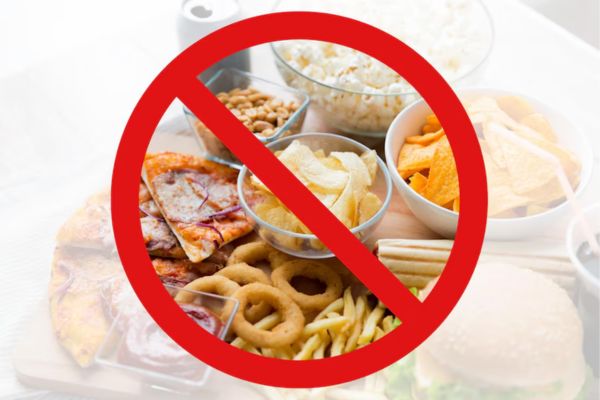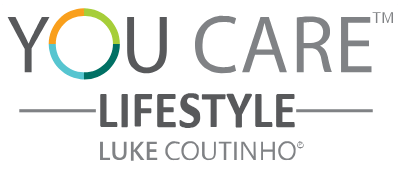In the modern hustle of everyday life, packaged foods often feel like a convenient blessing. But behind the colorful labels and enticing claims lies a silent threat to your health: trans fats. These industrially produced fats are prevalent in numerous products and have a profound impact on long-term well-being.
Let’s explore all about trans fats.
Table of Contents
What Are Trans Fats?
Trans fats are unsaturated fats that have undergone a chemical process called hydrogenation, where hydrogen is added to liquid oils to make them solid at room temperature. This process extends the shelf life of foods and improves texture, making it a favorite among food manufacturers. There are two types of trans fats:
- Naturally Occurring Trans Fats: Naturally occurring trans fats are found in small amounts in animal products like dairy and meat. While they are generally considered less harmful than industrial trans fats, excessive consumption can still pose health risks, including raising LDL cholesterol levels and potentially increasing the risk of cardiovascular diseases.
- Artificial Trans Fats: Created during hydrogenation, these are commonly found in processed and packaged foods and are considered highly harmful due to their strong association with heart disease, inflammation, and other chronic health conditions.
What is Hydrogenation?
Hydrogenation is a chemical process where hydrogen is added to liquid oils to make them solid or semi-solid. While this increases shelf life, it creates harmful trans fats that:
- Raise bad cholesterol (LDL)
- Lower good cholesterol (HDL)
- Promote inflammation
- Increase the risk of heart disease, diabetes, and obesity
The Science Behind Hydrogenation
Hydrogenation alters the molecular structure of oils, converting cis-unsaturated fats (naturally occurring and beneficial) into trans-unsaturated fats. This structural change not only reduces the nutritional value but also introduces harmful properties that disrupt normal cellular functions.
How to Identify Trans Fats on Labels
Despite growing awareness, trans fats often hide in plain sight. While many products now display “0 grams trans fat” on their labels, this can be misleading. According to regulatory loopholes, products with less than 0.5 grams of trans fat per serving can claim to be trans fat-free.
Hidden Terms to Watch Out For
To truly avoid trans fats, you need to read ingredient lists carefully. Look out for:
- Partially Hydrogenated Oils: These are the primary source of artificial trans fats and are commonly found in products labeled with hydrogenated oils, vanaspati, or shortening.
- Shortening: Widely used in baked goods and snack foods, shortening is a major contributor to trans fat consumption.
- Stick Margarine: Especially the stick varieties, which are more hydrogenated than tub or liquid forms, contain higher levels of trans fats.
Learn more terms that you should look for in our latest reel. Click here.
Serving Size Matters
Be cautious of portion sizes. A product labeled as having 0 grams of trans fat might still contain trace amounts. Consuming multiple servings can quickly add up, posing a significant health risk.
Health Risks of Trans Fats
The dangers of trans fats extend far beyond weight gain. Their consumption has been linked to several chronic conditions:
1. Cardiovascular Diseases
Trans fats are known for their effect on heart health. They:
- Increase LDL (bad cholesterol), which can build up in the walls of arteries and make them hard and narrow.
- Decrease HDL (good cholesterol), which helps remove excess cholesterol from the bloodstream.
- Promote arterial inflammation, a key factor in atherosclerosis.
If trans fat deposits inside the arteries tear or rupture them, a blood clot may form, blocking blood flow to the heart and causing a heart attack, or to the brain, causing a stroke.
2. Metabolic Disorders
Regular intake of trans fats contributes to insulin resistance, increasing the risk of type 2 diabetes. It also raises the likelihood of metabolic syndrome, characterized by high blood pressure, elevated blood sugar, increased body fat around the waist, and abnormal cholesterol levels. This syndrome amplifies the risk of heart attack and stroke. (FSSAI)
3. Neurodegenerative Diseases and Cognitive Decline
Emerging research highlights the detrimental effects of trans fats on brain health. By distorting cell membranes and altering neuronal communication, trans fats:
- Increase the risk of Alzheimer’s disease and cognitive decline.
- Diminish mental performance.
- Elevate the risk of depression.
Studies also suggest that trans fats from the diet can integrate into brain cell membranes, impairing their function and contributing to neurodegenerative conditions.
4. Compromised Fetal Development
Trans fats can harm fetal development, potentially causing long-term health issues for the unborn child. Pregnant individuals should be especially cautious about their trans fat intake.
5. Other Risks
Research has proved the direct connection of trans fatty acids with cardiovascular diseases, breast cancer, shortening of pregnancy period, risks of preeclampsia, disorders of nervous system and vision in infants, colon cancer, diabetes, obesity, and allergy. Trans fats have been linked to obesity, infertility, and certain types of cancers, adding to their alarming health profile.
Tips to Avoid Trans Fats

Pic Credits: Freepik; Say no to Trans Fats
Eliminating trans fats from your diet requires a combination of vigilance and proactive choices. Here are actionable steps:
1. Choose Healthier Fats
Replace trans-fat-laden products with healthier alternatives:
- Use cold-pressed oils like olive or coconut oil instead of hydrogenated oils.
-
Select A2 ghee over margarine or vegetable shortening.
2. Read Beyond Marketing Claims
Don’t rely solely on front-label claims like “trans fat-free” or “heart-healthy.” Be careful and attentive with the ingredient list for hidden sources of trans fats. Look for these nasties when in the market.
3. Choose Whole Foods
Prioritize whole, minimally processed foods like fruits, vegetables, nuts, and seeds. These naturally occurring foods are free from trans fats and rich in essential nutrients. Choose anything and everything from our Nutrition corner for safe, clean and minimally processed essentials.
4. Avoid Outside Fried and Fast Foods
Many fast food items and fried snacks are cooked in partially hydrogenated oils. Choose grilled or baked options instead. Or the best option, make those snacks at home with wood pressed oil instead.
5. DIY Your Snacks
Packaged snacks and baked goods are common culprits. Preparing your own versions at home allows you to control the ingredients and avoid harmful additives. For the finest mouthwatering recipes that you can make at home, check our recipe corner and you’ll thank us.
The Final Thoughts
Trans fats may be invisible, but their effects on health are undeniable. From disrupting cholesterol balance to increasing inflammation, these hidden dangers underscore the importance of mindful eating. By staying informed and making conscious food choices, you can safeguard your health and support your body in its natural healing processes. Remember, every small step towards eliminating trans fats from your diet is a giant leap towards a healthier, more vibrant life.
Disclaimer: This content is for informational purposes only and is not a substitute for professional medical advice, diagnosis, or treatment. Always consult your healthcare provider before trying any new food items, supplements, or products, especially if you have an existing medical condition or allergies.
You can reach out to us for expert assistance at +917059700700
Or write to us at [email protected]
Do you have any questions? Feel free to drop them in the comment box below.
Reference:
Ginter, E., & Simko, V. (2016). New data on harmful effects of trans-fatty acids. Bratislava Medical Journal, 117(5), 251–253
Dhaka, V., Gulia, N., Ahlawat, K. S., & Khatkar, B. S. (2011). Trans fats—Sources, health risks, and alternative approach: A review. Journal of Food Science and Technology, 48(5), 534–541.




Comments